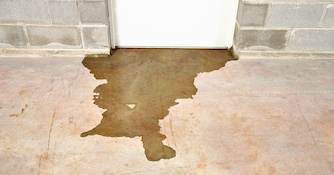
Effluent Pump Buyer's Guide
If you're new to effluent pumps, they're used to pump "greywater," which just means "dirty water" with limited solids.
This includes laundry water, limited septic fluids, and other wastewater. Effluent pumps are typically used to pump grey-water from a septic tank to a leach field.
For raw sewage, a sewage pump or grinder pump is recommended to prevent clogging from handling solids larger than 3/4" in width.
Choosing the Right Housing Material
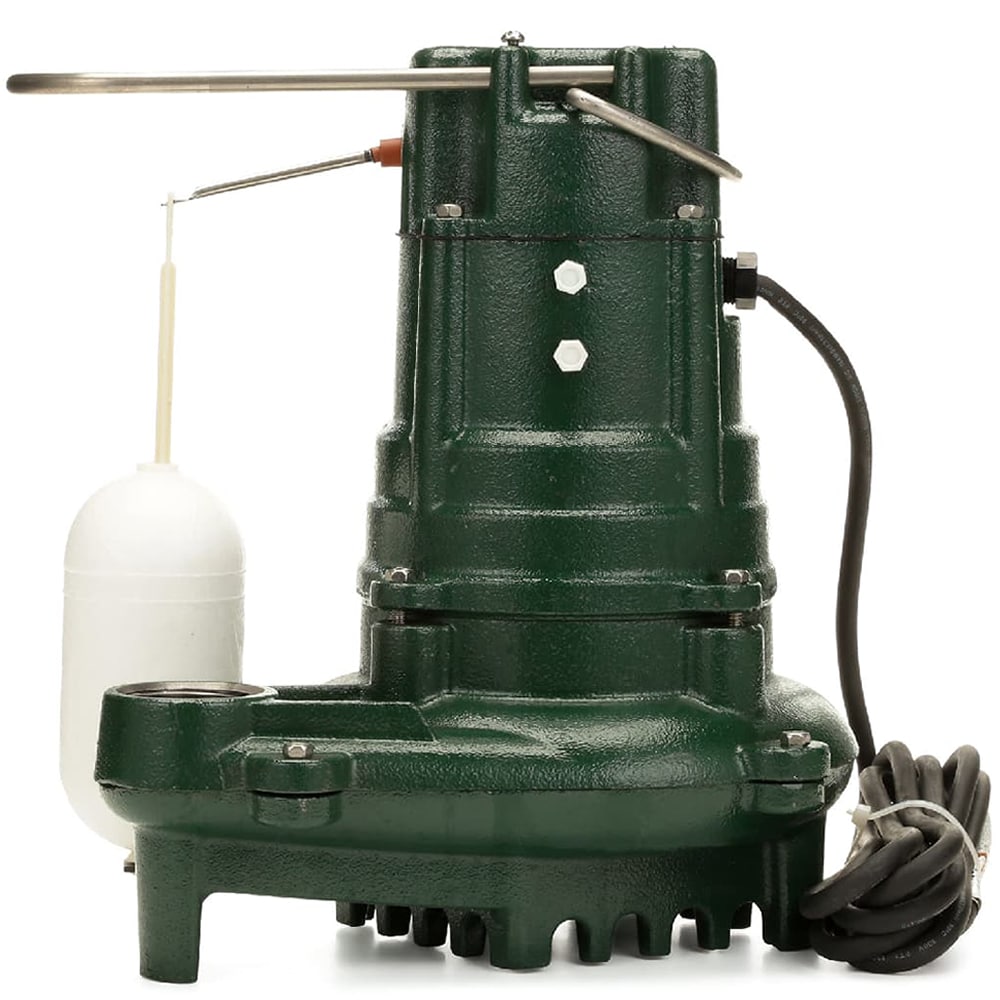
Effluent pumps are available in a variety of different housing materials, depending on your preference. Stainless steel and brass pumps can be found on the market, but the most common are cast iron and thermoplastic.
Cast iron housing offers rugged durability and added weight, whereas thermoplastic offers affordability and lighter weight. Cast iron effluent pumps are built to last and can stand up to heavy-duty use. They're a must-have in commercial applications, and the desired style for homeowners looking for longevity.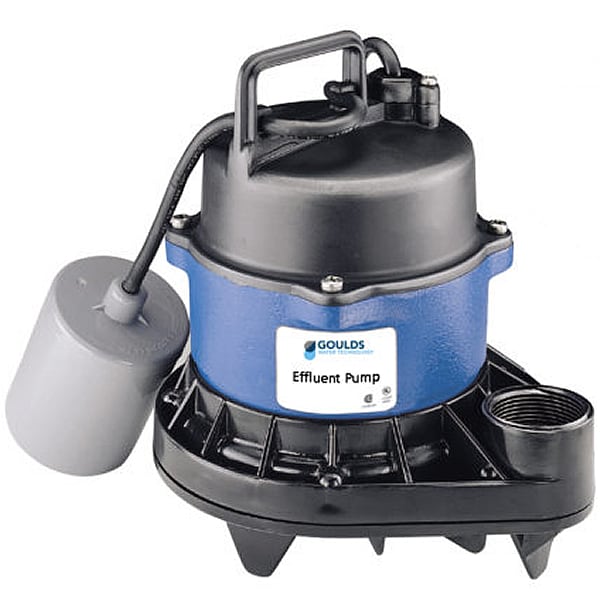 Thermoplastic pumps hold up well against corrosion, and they're also more affordable. They're ideal for less demanding applications if you're looking for a more economical choice. They're also easier to install or remove because they weigh less.
Thermoplastic pumps hold up well against corrosion, and they're also more affordable. They're ideal for less demanding applications if you're looking for a more economical choice. They're also easier to install or remove because they weigh less.
Sizing an Effluent Pump Correctly
If you're replacing an old effluent pump, you can typically use the same horsepower that you had before. That said, you should also pay close attention to the GPH or gallons per hour rating as they can vary by horsepower. If your pump wasn't keeping up, you may need to upgrade to a higher horsepower so it can keep up.
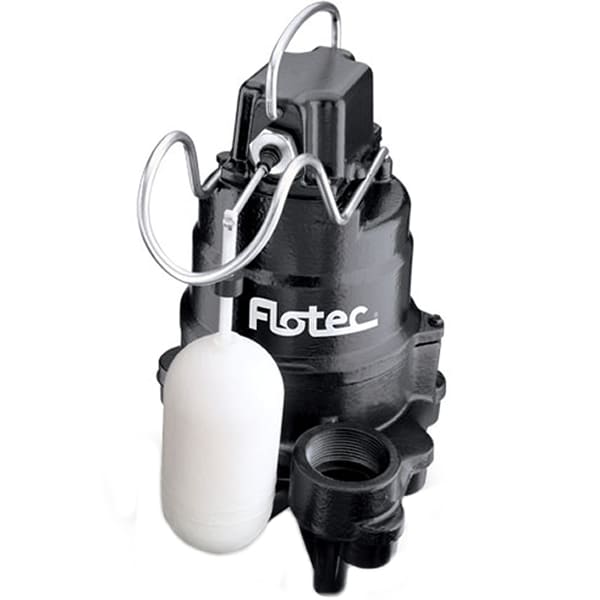 Below is a table that can help give you a basic idea of the horsepower you need in a pump, based on the most common characteristics of a septic system.
Below is a table that can help give you a basic idea of the horsepower you need in a pump, based on the most common characteristics of a septic system.
If you were able to get several years of service out of your old pump, chances are that it's the right horsepower to choose. If your previous pump stopped working after a couple of months, you may want to consider a different horsepower. It's possible that your old pump may have been too weak or too strong for your application.
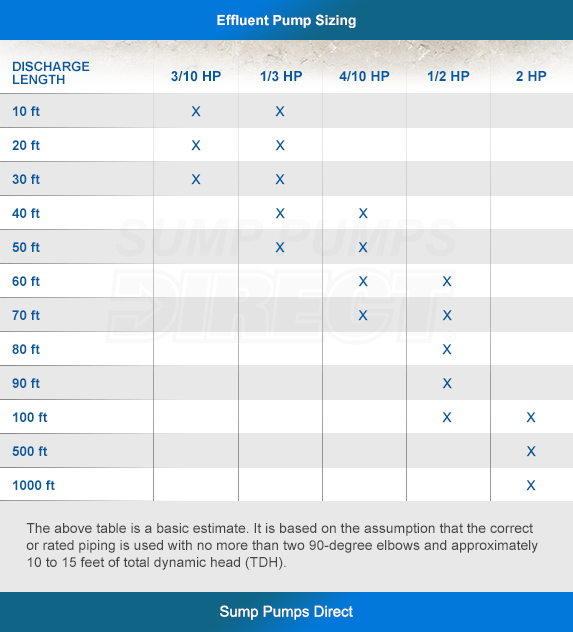
Effluent Pumps Vs Sewage Pumps
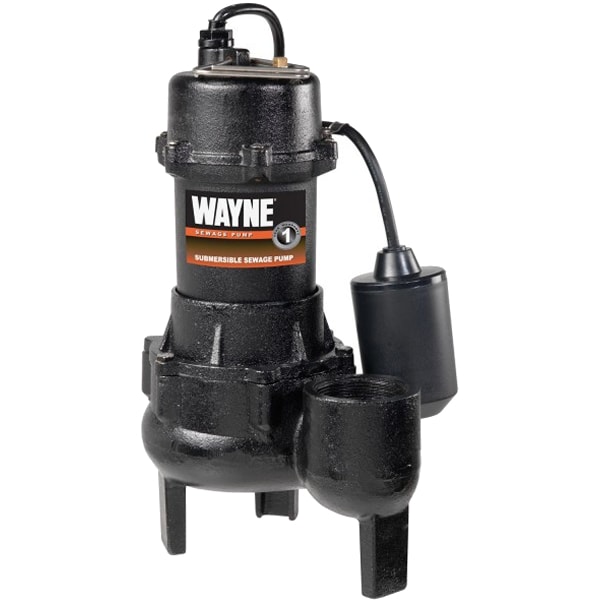 You'll notice that names for types of pumps are used interchangeably across the web, and the applications specific to effluent pumps may get confusing. The best way we can explain the difference between a sump pump, sewage pump, and an effluent pump is dependent on the material that it's pumping, and where that material is being sent to.
You'll notice that names for types of pumps are used interchangeably across the web, and the applications specific to effluent pumps may get confusing. The best way we can explain the difference between a sump pump, sewage pump, and an effluent pump is dependent on the material that it's pumping, and where that material is being sent to.
The main difference between an effluent pump and a sewage pump is that effluent pumps are meant for pumping grey water with minimal solids, preferably smaller than 1/2" in diameter, whereas sewage pumps are designed to handle human waste-solids and sewage materials up to 2" diameters.
Sewage pumps are also more powerful and generally pump water at a higher GPM (gallons per minute). Grinder pumps operate much like a sewage pump, with the addition of rotating blades at the base of the pump that tears up solid materials into a fine slurry before shooting through the pump and discharge pipes. Grinder pumps are usually used in commercial applications in restaurants, bars, hotels, or rental properties.
You do not want to use an effluent pump in place of a sewage or grinder pump when the application involves sewage water, waste solids, or passing solids larger than 1/2" in diameter. You may risk the pump burning out prematurely, clogging, or sewage backups.
When to Use an Effluent Pump
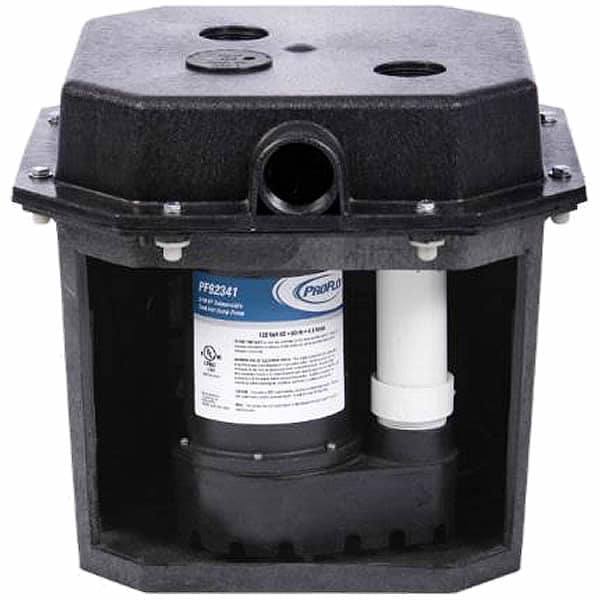 Effluent pumps are used in greywater applications where gravity is not enough to send water to the home's drainage system. Common effluent pump uses are for a laundry drain pump system or a remote sink drain system.
Effluent pumps are used in greywater applications where gravity is not enough to send water to the home's drainage system. Common effluent pump uses are for a laundry drain pump system or a remote sink drain system.
Effluent pump systems are also perfect when adding a wet bar, sink, or laundry room in the basement that sits below the home's main drainage lines. The best applications for effluent pumps are laundry tub drain and discharge applications, dishwasher and remote sink drainage applications, and sometimes, sump pit applications when there is no risk of having larger solids become trapped in the pit.


![The Top 3 Best Sewage Pumps of 2025 [Expert-Picked]](https://www.sumppumpsdirect.com/article-image/334/social_img_726.jpg)


